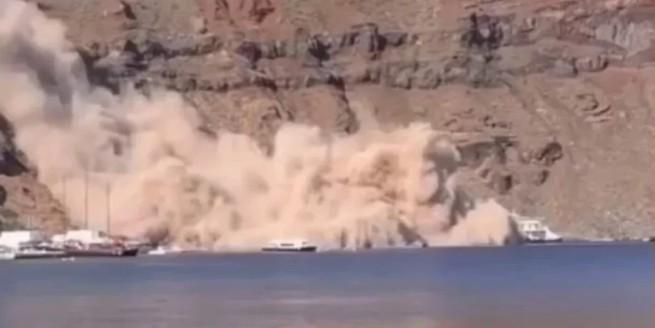The regimes of the Arab countries of the Persian Gulf and other developing countries will adapt to a new world in which the poles of power and hegemons are changing. It must be understood that this is no longer the world that the United States formed after the victory in the Cold War, writes As’ad Abu Khalil*.
It is too early to predict what the world will be like as a result of Russia’s military intervention in Ukraine. At the risk of repeating ominous stereotypes, we can say that the world order is changing irreversibly. The post-Cold War era is over. The US established world hegemony after the collapse of the USSR and provided a NATO siege against Russia to keep it weak and vulnerable and to maintain American dominance on the continent. Never before has America been challenged as directly and clearly as Russian intervention in Ukraine.
The old rules imposed by America by force are no more. While China has been cautious about officially expressing its support for Russia, its media has unequivocally dismissed the US propaganda. The echoes of this stunning event will not subside for years and will affect regional and international conflicts.
The impact of the Russo-Ukrainian war will also be felt in the Middle East, with its long history of confrontation between the USSR/Russia and the US.
Despite US pressure, not a single Arab country took part in the economic war against Russia – did not impose sanctions. Just like most countries in Latin America and Africa like Iran, India, Pakistan and China. Saudi Arabia and other Gulf states are resisting US pressure to pump more oil to make up for the shortfall due to the US ban on Russian imports.
Most significantly, Riad is in talks with China to sell some of the oil for yuan, which will be a blow to the US dollar, which is now used in 80% of the world’s oil transactions. So far, Saudi Arabia has only used the dollar.
Moscow is trying to repel a brutal Western economic attack on Russia by creating a separate economic and financial system with China. Arab countries can play an important role in this, actually showing the back of the United States (an example of the cooling of the Persian Gulf countries towards the United States, according to the Wall Street Journal: the heads of the UAE and Saudi Arabia refused to answer Biden’s calls).
UN Security Council approves no-fly zone in Libya, March 2011 (C-Span screenshot)
Prerequisites for geopolitical shifts
The shape of international relations was shaken in 2011, with the adoption resolution 1973 Council of the United Nations, which was limited to the creation of a no-fly zone to protect civilians in Libya, allegedly under threat of massacre by Libyan leader Muammar Gaddafi. (Later in the report British Parliament found that there were no such threats and was based on inaccurate information and “erroneous assumptions”).
The resolution did not allow ground forces to enter Libya. The language was clear. It stated that the Security Council:
“Decides establish a ban on all flights in the airspace of the Libyan Arab Jamahiriya in order to protect civilians [и] authorizes Member States that have notified the Secretary General, acting at the national level or through regional organizations or arrangements and acting in cooperation with the Secretary General, to take all necessary measures … to protect civilians and localities under threat of attack in the Libyan Arab Jamahiriya, including Benghazi, excluding the presence of foreign occupying forces in any form, in any part of Libyan territory.”
Despite these restrictions, the US and NATO took the resolution as NATO’s permission to overthrow a government that the US had long complained about. It did not matter that the Libyan dictatorial regime cooperated with the US in the years leading up to its overthrow. Then US Secretary of State Hillary Clinton even met with the head of the secret police of Libya, who turned out to be the son of the ruler.
Russia, then led by President Dmitry Medvedev, abstained from voting on the resolution, as did China. Both countries apparently believed that the mission would be restricted to a no-fly zone. Vladimir Putin, who was prime minister at the time, was reportedly






More Stories
Today the world remembers the accident at the Chernobyl nuclear power plant
A trial has begun in the case of a fatal accident involving Dora Bakoyanni's car.
Poll: which European countries are ready to defend their homeland to the last